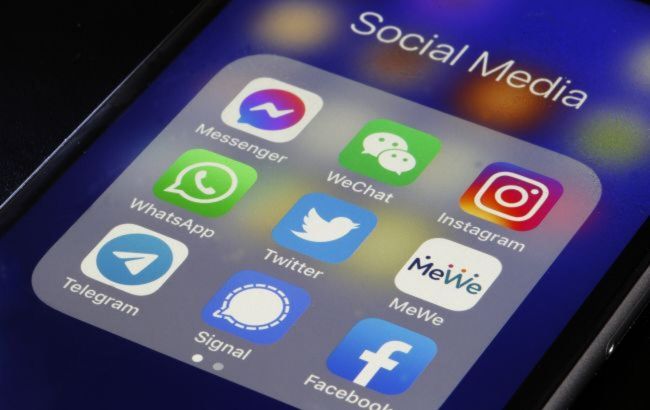Nepal blocks dozens of social networks, including Facebook and YouTube
 Photo: Nepalis restricted from using the most popular social networks (Getty Images)
Photo: Nepalis restricted from using the most popular social networks (Getty Images)
The government of Nepal has banned dozens of global social networks. The decision has raised suspicions of restrictions on free speech and created problems for tourists, according to The New York Times.
Nepal has restricted access to 26 platforms in total, including messaging apps WhatsApp, Facebook, Instagram, and WeChat, as well as portals like YouTube and LinkedIn.
The ban came into force on Thursday, September 4, after the one-week ultimatum given to social networks expired.
The sanctions confused the country and raised concerns about their impact on press freedom and the tourism industry, especially on the ability of families to stay in touch with relatives working abroad as labor migrants.
According to the census cited by the Nepal Economic Forum, as of 2021, about 7.5% of Nepal’s 29 million people lived outside the country.
Reason for ban and alternatives
Nepal’s Ministry of Communications and Information Technology said the ban was introduced after platforms refused to comply with the new social media regulation law, despite several official requests.
From now on, the government requires platforms to obtain a license and appoint a representative to handle complaints.
"We requested them to enlist with us five times. What to do when they don’t listen to us?" said Gajendra Kumar Thakur, a spokesman for the ministry.
Users expressed outrage on social media just hours before the ban was enforced. Some joked by posting their mailing addresses, hinting that the country was returning to "the age of letter exchange."
Many switched to Viber and TikTok - the only major platforms that agreed to register. Two smaller services, Hamro Patro and Global Diary, also applied for registration.
Freedom of speech and hit to tourism
The government’s decision sparked fears of curbs on freedom of expression in Nepal, though the country had remained a relatively open space for discussion, unlike many of its neighbors, where democratic freedoms have been eroded.
Critics note that Prime Minister Khadga Prasad Sharma Oli had been trying for years to expand government control over speech, but was held back by protests, including within his own party.
In November 2023, Nepal banned TikTok, claiming the app harmed "social harmony." TikTok agreed to register with the government, and after nine months, in August 2024, the ban was lifted.
Oli gained support following a Supreme Court order requiring media platforms to register so they could be held accountable for spreading false information.
"Nepal’s sweeping ban on social media sets a dangerous precedent for press freedom," Beh Lih Yi, the regional director for the Committee to Protect Journalists, said in a statement. "The government must immediately rescind this order and restore access to social media platforms, which are essential tools for exercising press freedom."
Tour operators stressed that beyond communication issues, the ban has also dealt a blow to the country’s vital tourism industry.
"For us, social media used to be a very popular tool for communication. That’s now gone, and it’s a nightmare-like situation," said Jiban Ghimire, managing director of Shangri-La Nepal Trek. "No communication, no business."
Related
The US is planning a full ban on the Chinese social network TikTok.
At the same time, Australia will ban YouTube use for children under 16.

